White Goods Recycle in Virginia Water: Sustainable Solutions for Your Home
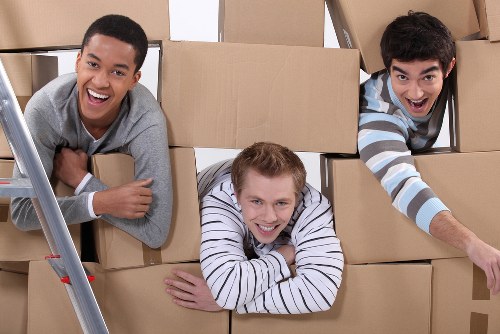
Recycling white goods is an essential step towards a more sustainable and environmentally friendly lifestyle. In Virginia Water, residents have access to various services that make recycling appliances like refrigerators, washing machines, and ovens both convenient and efficient.
White goods, also known as major household appliances, often contain materials that can be harmful to the environment if not disposed of properly. By recycling these items, you not only help reduce landfill waste but also contribute to the conservation of valuable resources.
Understanding the recycling process and knowing where to take your old appliances can make a significant difference. This guide provides comprehensive information on how to recycle white goods in Virginia Water, ensuring you make informed and eco-friendly decisions.
Why Recycle White Goods?
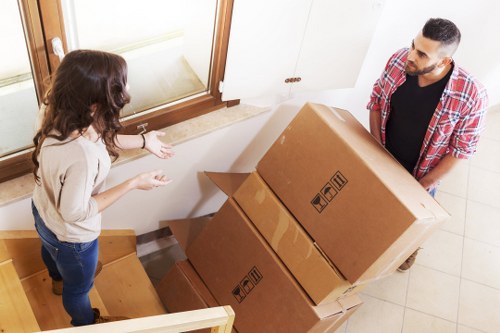
Recycling white goods offers numerous environmental and economic benefits. Here are some compelling reasons to consider recycling your old appliances:
- Environmental Protection: Proper recycling reduces the amount of waste sent to landfills and minimizes pollution.
- Resource Conservation: Recycled materials can be reused, lowering the demand for new raw materials.
- Energy Savings: Manufacturing products from recycled materials typically uses less energy compared to producing them from virgin materials.
- Compliance with Regulations: Recycling helps you comply with local laws and regulations regarding waste disposal.
- Financial Incentives: Some recycling centers offer incentives or discounts when you recycle large appliances.
By choosing to recycle your white goods, you contribute to a healthier environment and support sustainable practices in your community.
How to Recycle White Goods in Virginia Water
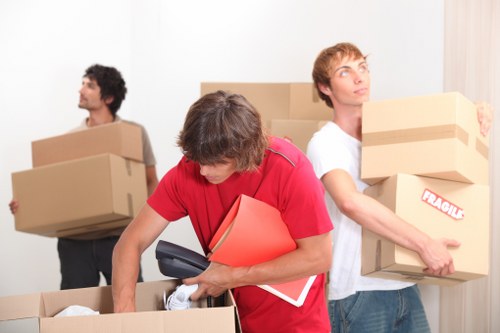
Recycling white goods in Virginia Water is a straightforward process. Follow these steps to ensure your appliances are recycled correctly:
- Identify Recyclable Items: Common white goods include refrigerators, freezers, washing machines, dishwashers, and ovens.
- Check with Local Authorities: Contact Virginia Water's local council or waste management services to understand the specific recycling programs available.
- Prepare the Appliance: Disconnect and clean your appliance. Remove any personal items and ensure it's safe for transport.
- Arrange for Pickup or Drop-off: Some services offer free pickup for large appliances. Alternatively, you can drop off your items at designated recycling centers.
- Ensure Proper Disposal: Verify that the recycling center you choose adheres to environmental standards and properly handles the materials.
By following these steps, you can efficiently recycle your white goods and contribute to environmental sustainability in Virginia Water.
Local Recycling Centers in Virginia Water
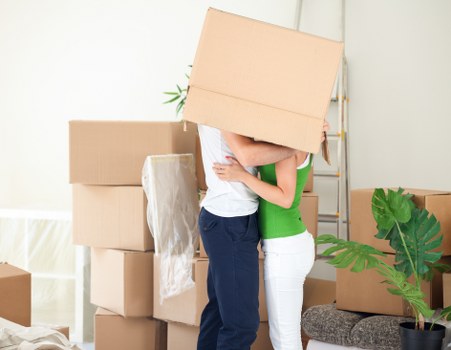
Virginia Water boasts several recycling centers equipped to handle white goods. Here are some prominent options:
- Virginia Water Recycling Facility: Located centrally, this facility accepts all major appliances and offers both drop-off and pickup services.
- EcoCycle Recycling Center: Known for its eco-friendly practices, EcoCycle accepts a wide range of white goods and ensures materials are processed responsibly.
- Green Earth Recyclers: A community-focused center that provides educational resources on recycling and environmental conservation.
Each of these centers provides reliable services to ensure your appliances are recycled effectively, supporting Virginia Water's sustainability goals.
Benefits of Using Professional Recycling Services
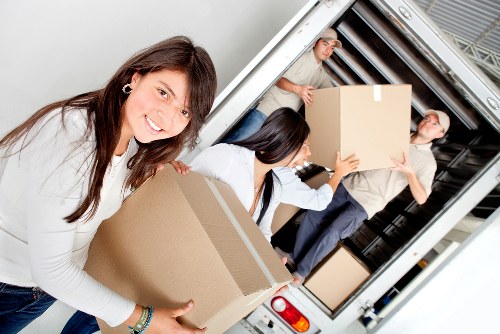
Opting for professional recycling services offers several advantages:
- Convenience: Professional services handle the logistics, making the recycling process hassle-free.
- Safety: Experts ensure that appliances are dismantled safely, preventing potential hazards.
- Compliance: Professional recyclers are well-versed in local regulations, ensuring all disposals are legal and environmentally sound.
- Efficiency: These services often have the infrastructure to recycle materials promptly and effectively.
- Support for Recycling Programs: By using these services, you contribute to larger recycling initiatives and environmental programs in Virginia Water.
Choosing professional recycling services ensures that your white goods are handled appropriately, maximizing the benefits of recycling.
Cost-Effective Recycling Solutions

Recycling white goods doesn't have to be expensive. Here are some cost-effective solutions available in Virginia Water:
- Free Pickup Services: Many local councils offer free pickup for large appliances, especially if you’re replacing an old item with a new one.
- Recycling Vouchers: Some centers provide vouchers or discounts when you recycle multiple appliances at once.
- Community Recycling Events: Participate in local recycling events, which often have no or minimal fees for recycling white goods.
- Trade-In Programs: Certain retailers offer trade-in programs where you can exchange your old appliance for a discount on a new purchase.
- Non-Profit Organizations: Some non-profits accept white goods for recycling and may offer them to those in need or sell them to fund environmental projects.
By exploring these options, you can recycle your white goods without straining your budget while still supporting environmental sustainability.
Environmental Impact of Improper Disposal

Improper disposal of white goods can have severe environmental consequences:
- Pollution: Many appliances contain harmful chemicals like refrigerants and heavy metals that can contaminate soil and water if not disposed of correctly.
- Energy Waste: Discarded appliances contain reusable materials such as metal, plastic, and glass. Failing to recycle them means these resources are wasted.
- Landfill Overload: Large appliances take up significant space in landfills, accelerating their capacity limits and reducing their lifespan.
- Greenhouse Gas Emissions: Manufacturing new appliances from virgin materials generates more greenhouse gases compared to using recycled materials.
Ensuring proper recycling of white goods helps mitigate these environmental issues, promoting a healthier and more sustainable planet.
Recycling Process for White Goods

The recycling process for white goods involves several stages to ensure materials are handled responsibly:
- Collection: Appliances are collected from households or drop-off centers.
- Transportation: Items are transported to recycling facilities equipped to handle large appliances.
- Disassembly: Appliances are carefully dismantled to separate different materials such as metals, plastics, and electronics.
- Processing: Separated materials are processed for reuse or further recycling. Metals may be melted down, while plastics are shredded and repurposed.
- Disposal of Hazardous Materials: Any hazardous components are disposed of following environmental regulations to prevent contamination.
This systematic approach ensures that white goods are recycled efficiently, reducing environmental impact and conserving resources.
Tips for Preparing Your Appliances for Recycling

Properly preparing your appliances can streamline the recycling process. Here are some tips:
- Disconnect and Clean: Unplug the appliance and clean it thoroughly to remove any food residues or personal items.
- Remove Doors and Loose Parts: For refrigerators and washing machines, remove doors or any detachable parts to make transportation easier.
- Drain Fluids: Ensure all fluids, especially from refrigerators and freezers, are drained to avoid spills and contamination.
- Secure Moving Parts: Tape down or secure moving parts to prevent accidents during transportation.
- Check for Recycling Requirements: Some facilities may have specific requirements, such as removing certain components or labeling parts for easier processing.
Following these preparation steps ensures your appliances are ready for recycling, making the process efficient and effective.
Choosing the Right Recycling Service

Selecting a reliable recycling service is crucial for effective white goods recycling. Consider the following factors:
- Reputation: Look for services with positive reviews and a track record of reliable recycling practices.
- Certification: Ensure the service is certified by relevant environmental authorities, indicating adherence to recycling standards.
- Range of Services: Choose a service that handles a wide range of white goods and offers additional services like pickup and disposal.
- Cost: Compare pricing structures and consider any additional fees or discounts available.
- Customer Support: Opt for services that provide excellent customer support to assist with any queries or issues during the recycling process.
By evaluating these factors, you can select a recycling service that best meets your needs, ensuring your white goods are recycled responsibly.
Local Regulations and Compliance

Adhering to local regulations is essential when recycling white goods in Virginia Water. Here's what you need to know:
- Registration Requirements: Some recycling centers require you to register or provide proof of residence within Virginia Water.
- Disposal Guidelines: Follow specific guidelines regarding appliance preparation and documentation to comply with local laws.
- Hazardous Material Handling: Ensure that hazardous materials like refrigerants are handled by certified professionals to prevent environmental contamination.
- Reporting Obligations: For large-scale recycling operations, there may be reporting requirements to monitor environmental impact.
- Penalties for Non-Compliance: Failing to adhere to regulations can result in fines or other legal consequences.
Understanding and complying with these regulations ensures that your recycling efforts are lawful and contribute positively to the community's environmental goals.
Benefits of Recycling for the Community

Recycling white goods has significant benefits for the community of Virginia Water:
- Job Creation: Recycling facilities create jobs in collection, processing, and management, boosting the local economy.
- Community Health: Proper recycling reduces pollution and improves overall public health by minimizing exposure to harmful substances.
- Educational Opportunities: Recycling programs often include educational initiatives that promote environmental awareness among residents.
- Enhanced Quality of Life: A cleaner environment and sustainable practices contribute to a higher quality of life for all community members.
- Resource Availability: Recycled materials support local manufacturing and construction industries, ensuring resource availability.
These community benefits highlight the importance of active participation in recycling initiatives, fostering a sustainable and prosperous Virginia Water.
Innovations in White Goods Recycling

Advancements in technology are enhancing the white goods recycling process. Some notable innovations include:
- Automated Sorting: Robotics and AI are improving the efficiency and accuracy of sorting recyclable materials.
- Advanced Dismantling: New machinery allows for quicker and safer dismantling of complex appliances.
- Material Recovery: Enhanced techniques for recovering valuable materials like rare metals and high-quality plastics.
- Energy-Efficient Processes: Innovations aim to reduce the energy consumption of recycling facilities, making the process more sustainable.
- Blockchain for Transparency: Implementing blockchain technology to track appliances through the recycling process, ensuring transparency and accountability.
These innovations not only streamline the recycling process but also increase the quality and quantity of materials recovered, further benefiting the environment and the economy.
Frequently Asked Questions
1. What are white goods?
White goods refer to major household appliances such as refrigerators, washing machines, dishwashers, and ovens. They are typically larger, durable, and essential for daily household functions.
2. How can I schedule a pickup for my old appliance in Virginia Water?
To schedule a pickup, contact your local recycling center or waste management service in Virginia Water. Many services offer online booking or phone reservations for appliance pickups.
3. Are there any costs associated with recycling white goods?
Some recycling services offer free pickup for large appliances, especially if you purchase a new one. Others may charge a nominal fee. It's best to check with your chosen recycling center for specific pricing details.
4. Can I recycle smaller appliances like microwaves and toasters?
While smaller appliances can often be recycled, it's important to check with your local recycling center. Some facilities have specific guidelines or may not accept certain types of small appliances.
5. What happens to my appliance after I recycle it?
After recycling, appliances are dismantled, and their materials are separated for reuse. Metals, plastics, and other materials are processed and repurposed for new products, reducing the need for virgin resources.
Recycling in Nearby Areas

Virginia Water is surrounded by several areas that also offer white goods recycling services. Here are some of the closest locations:
- Bagshot: Just a short drive away, Bagshot offers comprehensive recycling facilities for all major appliances.
- Brooklands: Known for its eco-friendly recycling center, Brooklands is equipped to handle various white goods efficiently.
- Blackwater: This area provides specialized services for recycling appliances, ensuring environmentally sound disposal methods.
- Chertsey: Chertsey's recycling centers are well-regarded for their thorough and reliable recycling practices.
- Mimeure: Nearby Mimeure offers convenient recycling drop-off points for residents of Virginia Water.
- Staines: With multiple recycling options, Staines is a convenient choice for recycling white goods.
- Farnham: Farnham's recycling facilities are known for their efficient processing and customer-friendly services.
- Egham: Egham offers various recycling programs, making it easy for residents to recycle their appliances.
- Weybridge: Weybridge's recycling centers are equipped to handle large appliances and ensure proper material recovery.
- Woking: Woking provides extensive recycling services, including for white goods, supporting the broader region's sustainability efforts.
These nearby areas complement Virginia Water's recycling infrastructure, providing residents with ample options to recycle their white goods responsibly.
Conclusion

Recycling white goods in Virginia Water is a crucial initiative for preserving our environment and promoting sustainability. By understanding the process, utilizing local recycling centers, and adhering to proper disposal guidelines, residents can make a significant impact.
Whether you're upgrading your appliances or simply looking to dispose of an old one, Virginia Water offers numerous resources and services to facilitate effective recycling. Embracing these practices not only benefits the environment but also supports the community's economic and social well-being.
Take the first step towards a greener future by responsibly recycling your white goods in Virginia Water today.